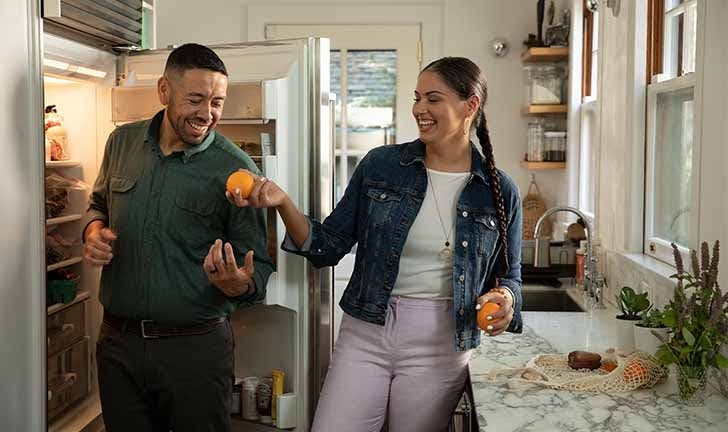Lockdown love


Since COVID-19 lockdowns began in March, you’ve no doubt heard anecdotes of breakups galore as a result of couples spending more time together in close quarters than ever before.
We wanted to take a look at the pandemic’s effects on couples, particularly in terms of intimacy – and offer advice for anyone who may be struggling in that department while cooped up together.
First things first, “couples” are not a monolith, cautions Dr. Gail Saltz, clinical associate professor of psychiatry at the NY Presbyterian Hospital Weill-Cornell School of medicine and host of the Personology podcast from iHeart Media.
Not all couples have been affected in the same way by lockdown conditions.
“Some couples have done well, pulling together, leaning on each other,” Saltz says.
“For some couples, the extra time at home has allowed them to rediscover each other and become more connected and intimate,” adds licensed marriage and family therapist Nicole Arzt, who serves on the advisory board for Family Enthusiast.
But for others, lockdowns have made relating to their partner more difficult.
Saltz says she’s heard some reports of relationships being negatively affected, as well as more breakups.
“It’s true that when one or both members of a couple are highly stressed, unhappy, anxious, it can negatively impact the relationship – especially if they believe their partner should be able to make them happy no matter what and they blame their partner for their current unhappiness.”
Arzt adds, “For others, all the time at home is making them feel a bit stir-crazy. If you’re used to being away at work, going to the gym, socializing with friends, et cetera, it can feel unnerving to have all this time at home with your partner.”
And on top of that, the pandemic has added a lot of stress to many people’s daily lives.
“Additionally, many couples are facing serious pandemic concerns, like financial issues due to unemployment or the fear of unemployment, disagreements about child care and the extra stress of having kids at home all day, and medical issues related to COVID itself,” says Arzt.
The effects on intimacy of being locked down together for weeks and months at a time are complicated.
Being together all the time, especially if you’re not grooming as much as you did before the pandemic, may decrease feelings of attraction, Saltz says. And if you have young kids at home, that can certainly interrupt opportunities to be intimate with each other. “On the other hand,” she notes, “being cut off from other social-ness can increase your bond and your attraction and intimacy.”
The pandemic’s effects on mental health add another layer to all of this.
“The pandemic has heightened almost everyone’s anxiety and depression,” Arzt adds, which can certainly affect intimacy. “People may be more sensitive, upset, afraid and angry right now, all of which can affect how close you feel with your partner.”
Saltz explains further: “Personal misery can make one irritable, short-fused, less patient and therefore less kind, less empathetic, less giving, less in the mood for sex, less able to compromise.”
If you are feeling this way, she says, and you are together 24/7, “this is a difficult recipe for a good relationship. Couples are more likely to erupt in fights, to pick at each other, to stop trying to be attractive to each other, and to give up trying to really care for each other.”
And if you’re dealing with anxiety and/or depression, as many people are right now especially, and you’re noticing diminished intimacy between you and your partner, there could be a correlation.
“Anxiety and depression both harm libido,” Saltz says. “Depression especially decreases libido and anxiety makes it difficult to get aroused and have an orgasm.”
However, she notes, physical intimacy can be comforting and stress relieving when you have anxiety or depression.
If you’re looking for ways to increase intimacy with your partner, Saltz has a few suggestions.
“Try something new – even if it’s in the same old place,” she says. “A new position, some new foreplay, new music, new outfit, new lighting. Newness can spark arousal.”
She also recommends setting aside some time for non-sexual physical intimacy, things like a massage, snuggling or making out (but without sex). “This can increase intimacy without pressure to perform,” she says.
Arzt also encourages people to keep talking about their feelings.
“Try to be honest with your partner about what’s going on with you. In turn, listen to them when they express their feelings. Don’t make assumptions that you know what’s going on.”
Note: There has been an increase in domestic violence during the pandemic. If you or someone you know is in immediate danger, please call 911. Other resources can be found here.
